This “Limited Edition” Blu-ray from Arrow Video is currently available at retailers.
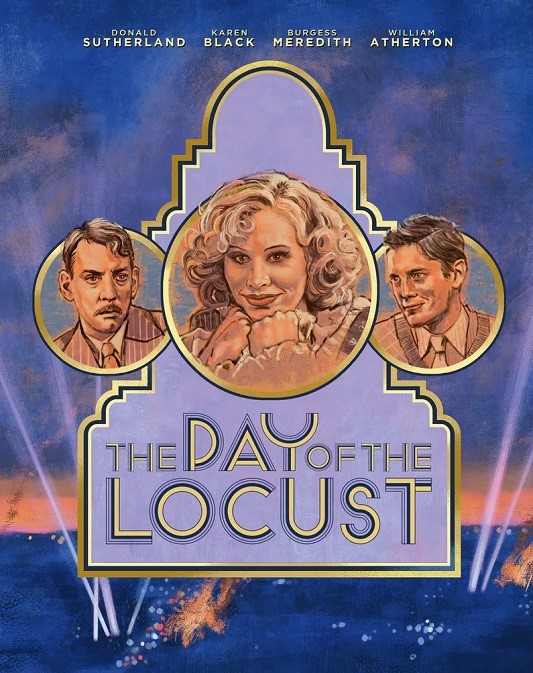
Often, after winning awards for their work, directors are allowed more control and power on their future projects. Much of the time, things don’t end up working out quite as smoothly and the features receive more criticism than raves. This certainly happened to British director John Schlesinger, whose Midnight Cowboy (1969) was praised and won numerous Academy Awards. His follow-up Sunday Bloody Sunday was equally acclaimed by the press, leading to a deal with Paramount on his most lavish and epic project, The Day of the Locust. It was an adaptation of a controversial 1939 novel from Nathanael West and the movie was met with a harsher reception than anticipated during its original release.
Despite this era providing plenty of dark tales (including Chinatown, which was being shot at the same time at Paramount and production offices were right next to each other), The Day of the Locust really irked people with its largely negative portrayal of the “Golden Age” of Hollywood. The extremely bleak and violent finale likely turned even more people off. But despite its initial box office failure, the movie did make an impression and has slowly built a sizable following. After nearly 50 years, it can be said that the film has aged very well and continues to captivate with its shady depiction of the era. Arrow Video has released a wonderful “Limited Edition” Blu-ray that includes a great 2K restoration from the original negative.
As previously noted, the story is set in 1939 and follows Tod Hackett (William Atherton), a Yale grad and aspiring artist also hoping to make it in Hollywood working in the art department. Living in his small apartment community are various other wannabes, including Faye Greener (Karen Black), daughter of a troubled ex-vaudeville entertainer (Burgess Meredith). The aspiring starlet quickly becomes the object of Hackett’s desire, despite being completely self-involved to the point where she will use others and literally do anything to gain attention. Adore Loomis (Jackie Earle Haley) is a grating child actor also looking to make his break. And there’s also meek resident and accountant Homer Simpson (Donald Sutherland), who quietly lusts after Greener. As time passes, viewers see these damaged characters further debase themselves for a chance at success and fame. It all culminates in a Hollywood premiere that results in a violent riot.
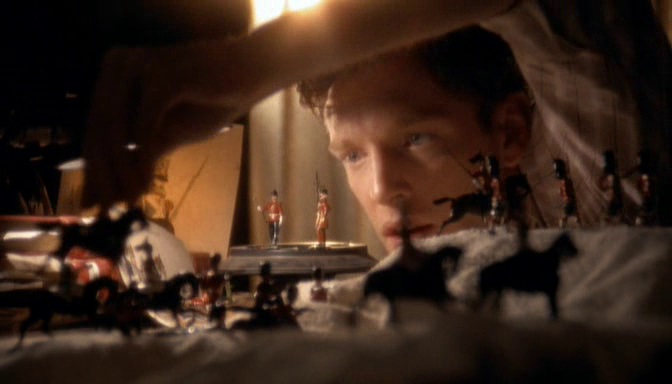
The movie is a critique on cutthroat capitalism, with Hollywood serving as an extreme microcosm for the country. The approach is unrelenting in its grimness. Greener uses and is used mercilessly by those around her. Even lead Hackett becomes crueler as the story progresses (at one point, he tries to physically assault Greener after becoming frustrated by her lack of interest in him). The actress’ alcoholic father is a sick, sad and hopeless case. Additionally, the child actor is vicious both to those around him at work and in the complex. And while timid Simpson manages to look past Greener’s faults even as she is using him to support herself, his mental state soon deteriorates.
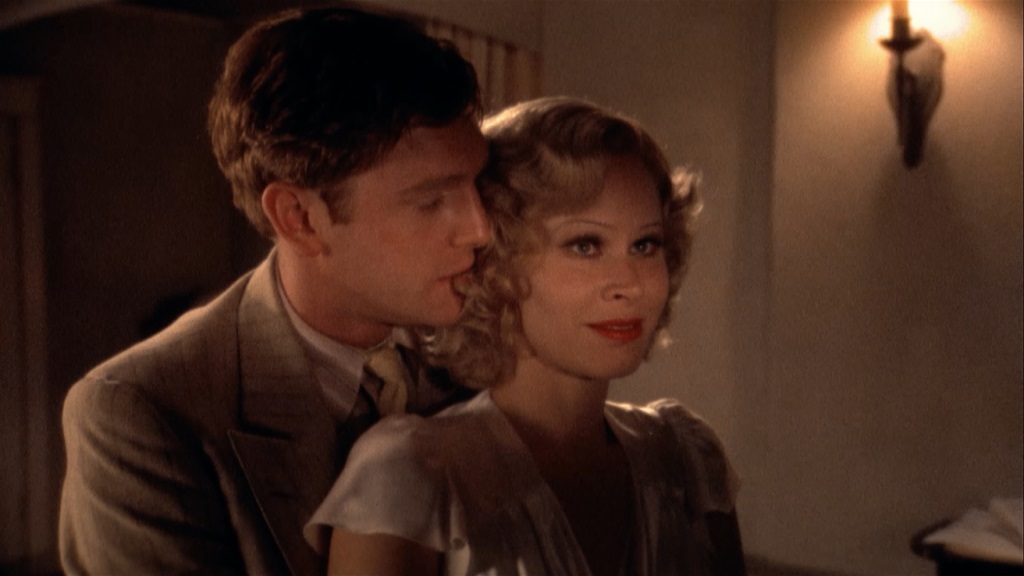
It’s an excellent expose of how terribly workers may have been treated by their bosses, as well as everyone’s fleeting and desperate attempts to gain celebrity and riches. There’s an incredible scene in which Hackett visits a soundstage to see an epic set. It’s a large hillside where part of the Battle of Waterloo is being shot for a historical feature. The set begins to fall apart mid-shot, endangering cast members and extras. It looks incredible to see performers hang and fall a couple of stories or more onto the hard studio cement floor. And of course, the finale is unforgettable as violence erupts and crowds go mad in the streets (while radio promoters try to sell the fracas as excited fans vociferously supporting the stars at the premiere).
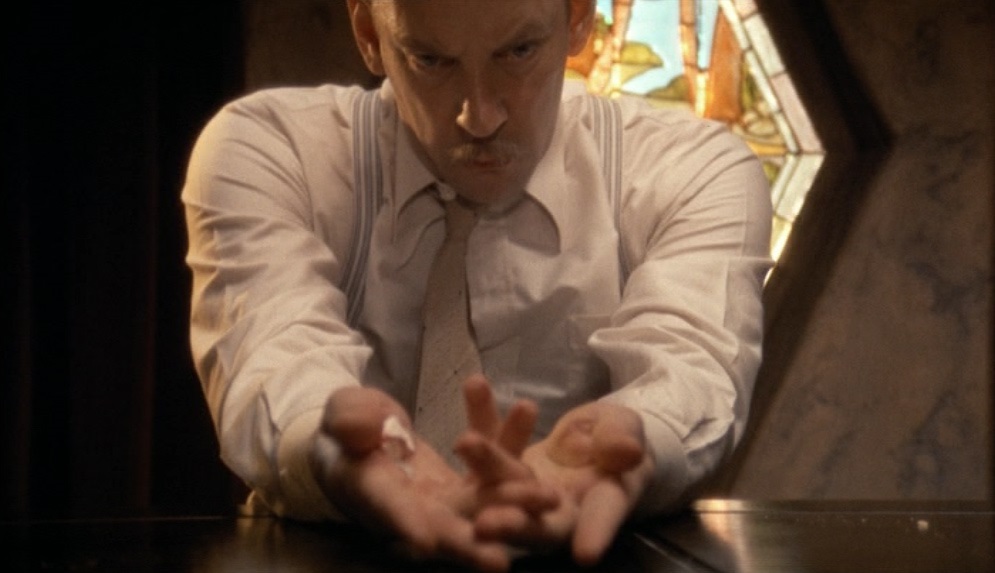
All of the cast are excellent at conveying desperation as their personal dreams slowly die, but Sutherland makes a strong impression. He’s consistently bullied and treated awfully, initially making the man sympathetic. When his mind reaches its breaking point, it’s a real shock to see the character carry out one of the most brutal acts ever seen on the screen at this point in time.
The movie has an intentionally soft and glossy look, but it still looks clearer here than it ever has before. This transfer highlights the beautiful cinematography by Conrad L. Hall (Butch Cassidy and the Sundance Kid, Marathon Man, American Beauty, Road to Perdition). It is a big and lavishly shot effort and it’s wonderful to see the images get the treatment they deserve on Blu-ray.
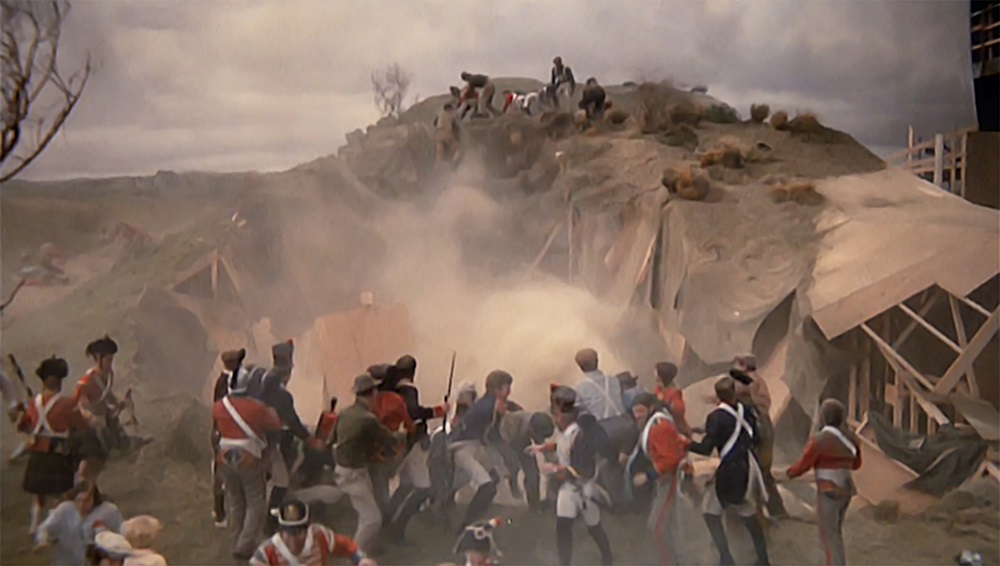
The extras are also enlightening. The oral history commentary track features interviews with various people involved in the production, including assistant director Leslie Asplun, production associate Michael Childers, title designer Dan Perri, costume designer Ann Roth, assistant editor Alan L. Shefland, assistant camera operator Ron Vidor, assistant director Charlie Ziarko, in addition to cast members Grainger Hines and Pepe Serna. They all talk about working with Schlesinger and some appear to have had different experiences. A few thought he was kind, while others found him temperamental. A couple of interviewees also note that things actually did go wrong with the Battle of Waterloo sequence and that the set collapsed incorrectly. No one was injured and it looks fantastic, but it may have felt like a moment of life imitating fiction.
Film critic Glenn Kenny also shares his thoughts on the movie and its importance. His comments are insightful as well, detailing ways in which the picture shows broken people being drawn to Hollywood for a chance at a fairy tale life. There’s a great visual essay as well that goes over similar details, as well as a history of the 1939 book and the controversy that surrounded its publication. It seems plenty of famous critics lashed out at both the book and the film upon their releases. If these projects were really striking a nerve in others, one hopes that the creators took this fury as a compliment of the effectiveness of their creations.
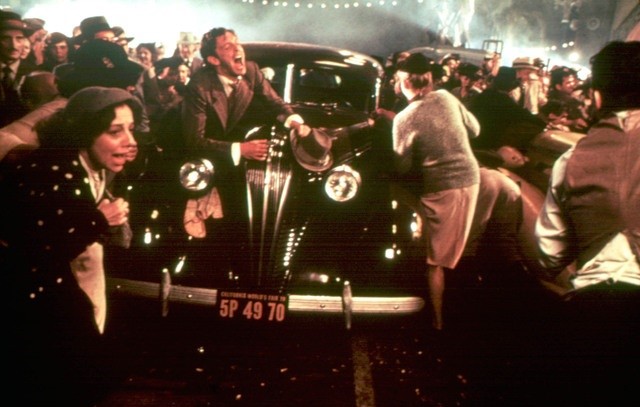
Additionally, the disc also features an extensive look at the elaborate period costumes and how they were created. It also contains radio spots for the film, promotional stills, behind-the-scenes photos and more. There’s also a well-written essay on the movie contained in the liner notes and an impressive reversible sleeve.
The Day of the Locust was one of those titles that I always saw in shops as a child but passed by, largely because it wasn’t as familiar as other titles of its era. It’s unfortunate that so much good work went unnoticed (although Schlesinger’s follow-up to this feature, Marathon Man, put him back on a winning streak with audiences and reviewers), but I’m thrilled to have now seen this remarkable movie.
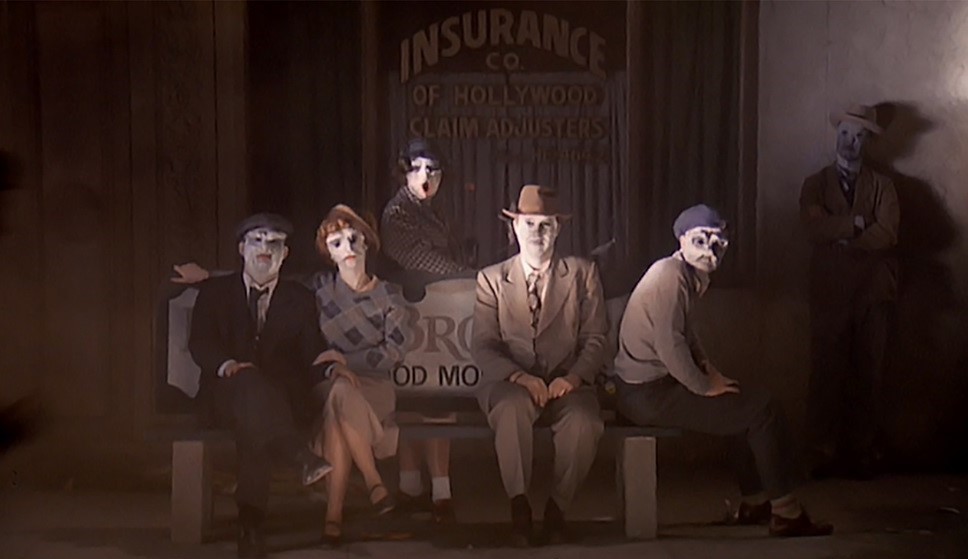
Personally, I’m thrilled that Arrow Video has acquired the rights to this title and released a Blu-ray with a stellar picture. While it’s a rough story about a system using and tearing apart individuals, the movie itself is excellent. It’s exceptionally made, includes an incredible supporting performance, an important message and delivers several nightmarish scenes that aren’t easily forgotten. Those with an appreciation for 1970s cinema should feel obligated to pick this effort up. This tragic tale does not disappoint.


